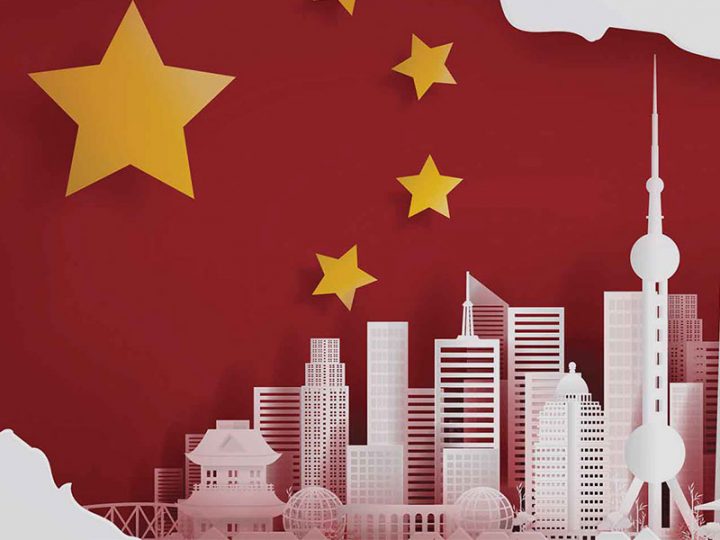The very short answer would be: Beacons. And, respectively, whatever comes after.
What are Beacons?
Using the definition provided by Wikipedia:
iBeacon is a protocol developed by Apple and introduced at the Apple Worldwide Developers Conference in 2013. Various vendors have since made iBeacon-compatible hardware transmitters – typically called Beacons – a class of Bluetooth low energy (BLE) devices that broadcast their identifier to nearby portable electronic devices. The technology enables smartphones, tablets and other devices to perform actions when in close proximity to an iBeacon.
Why Beacons?
In what direction does the consumer goods & service market move, what are the influencing factors, and what can we make of the data we already have?
The customers, or, as most B2C companies have to fit them in to their revenue relevant process, the “average” customers, are one of the more important parts of the sales process, as most people would agree. And also nearly everyone might agree on these generic facts:
– A good service experience is a – if not the – key factor, importance depending on the respective place on the service-goods continuum
– Digital affinity gets more important constantly
– To understand the customer, the ability to get and successfully analyze customer data is key
The main problem in the ever-growing need to understand the customer better starts at the first sentence in the column above, and everything the market streams show points towards an unsatisfying realization:
There are less and less “average” customers. The demand for individualized services, service-related goods and also just pure commodity goods has risen steadily over the past decades.
In other words, “exactly what I want, when and where I want it.”
Build your burger, car2go, design your own giveaway, teddy or shirt, the list goes on and on. And in times of less and less reliable standards, individual customer data is the key to success.
The downside
Right now, many companies see and feel the potential of this aforementioned technology.
Communication, marketing, discounts, mall navigation, everything, of course, individual… and the by now known but at times anxiously hushed up data collection possibilities, which might have been in the mind of the 95% of customers of a German company testing this technology who didn’t use the offered Beacons signal.
Depending on your country of origin, data collection could be a very hot topic. Big companies might not be seen in a positive light by many customers as it is, following the stigmatizations often used in documentaries: Big, heartless, greedy… Those are not the attributes of someone you want to trust with your sensible data.
Include the insecurity and sometimes halfwit in regards to technological possibilities, and you have a second “I don’t want Google Street View to watch me sunbathing on my balcony”-reaction.
So a very open, sensitive and informing policy regarding data collection is a necessity.
And this might even be only the second largest problem.
If the market jumps to this next potential holy grail with more enthusiasm than thoughtful analysis, the by now still few people willing to install another application, allowing push notifications and, so, “opening the door,” might be displeased rather fast after the fifth “customized infomercial popup” vibrates in their pocket within a few minutes of walking through an area with a high shop density.
So why will it still grow?
At every beginning, there is a lot of trial and error. There were a lot of Googles, Amazons and eBays in the beginning, but meanwhile, most of the dust has settled. Sometimes, a Zalando comes along, but by far not in the starting multiplicity.
As a customer, at times, I like to be recognized and treated as an individual by some, and getting the “same as always?” familiarity treatment from relatively strangers. I don’t mind the Italian restaurant around the corner knowing my “lots of parmigiana and an espresso afterwards” routine; or my book store clerk handing me a flyer for a Terry Pratchett special edition with a knowing nod.
There are times when sharing personal data and receiving personalized advertising is perfectly fine and even appreciated. And there are companies who will manage to balance along this bumpy road of challenges and opportunities ahead.
Also, the technical development will be on a steady forward movement behind the scenes, where many location relevant processes are starting with or are already relying on BLE-based systems.
Big Players
Another strong indicator, apart from the startup companies popping into existence in manifold varieties might be the participation of big companies, successful players in the market, trying to get an early first insight into the topic.
On the user side, McDonalds dipped its toe in the Bluetooth lagoon as early as 2014, including restaurants in Turkey, Germany and USA with partly similar, but locally adapted concept runs. Within a range of varying results, a few findings were very identical:
• Customers are still cautious.
• Younger customers adapt more easily to the idea.
• Customers tend to use the system more often once used to it.
• Beacons increase sales.
Whatever one might think about fast food and possible health consequences, past endeavors of the burger giant show success, detailed reasoning and planning, and a good process structure.
On the developers’ side, the setup also seems ready for broadband usage. Apple as developer of the original iBeacon protocol, of course, is ahead and ready with its phones, tablets and supporting software. But also, for example, Chrome for Android will be supporting the Beacons technology by including possibilities to find nearby Beacons. Also, reading between the lines in multiple developers forums, the smartphone big player Samsung, already supporting the BLE technology on a software level (Smart Ready), will increase the support with hardware (BLE chips), so the infrastructure is set up strongly.
Final Verdict
In my opinion, after the aforementioned dust of data collectors and spamming ad pushers finally has settled, we as customers are left with a few helpful and improved services, offered by us, the smart and thoughtful providers with a digital edge, supported by us, the providers of helpful, efficient hard- and software.
So given that the demand is there, the usability is there, the technology is adapting, and the infrastructure will be able to handle the rush, it feels safe to assume a steady grow in every sector that can find usefulness in Beacons, and expect a market advantage for every company that is able to successfully beacon their approach.




